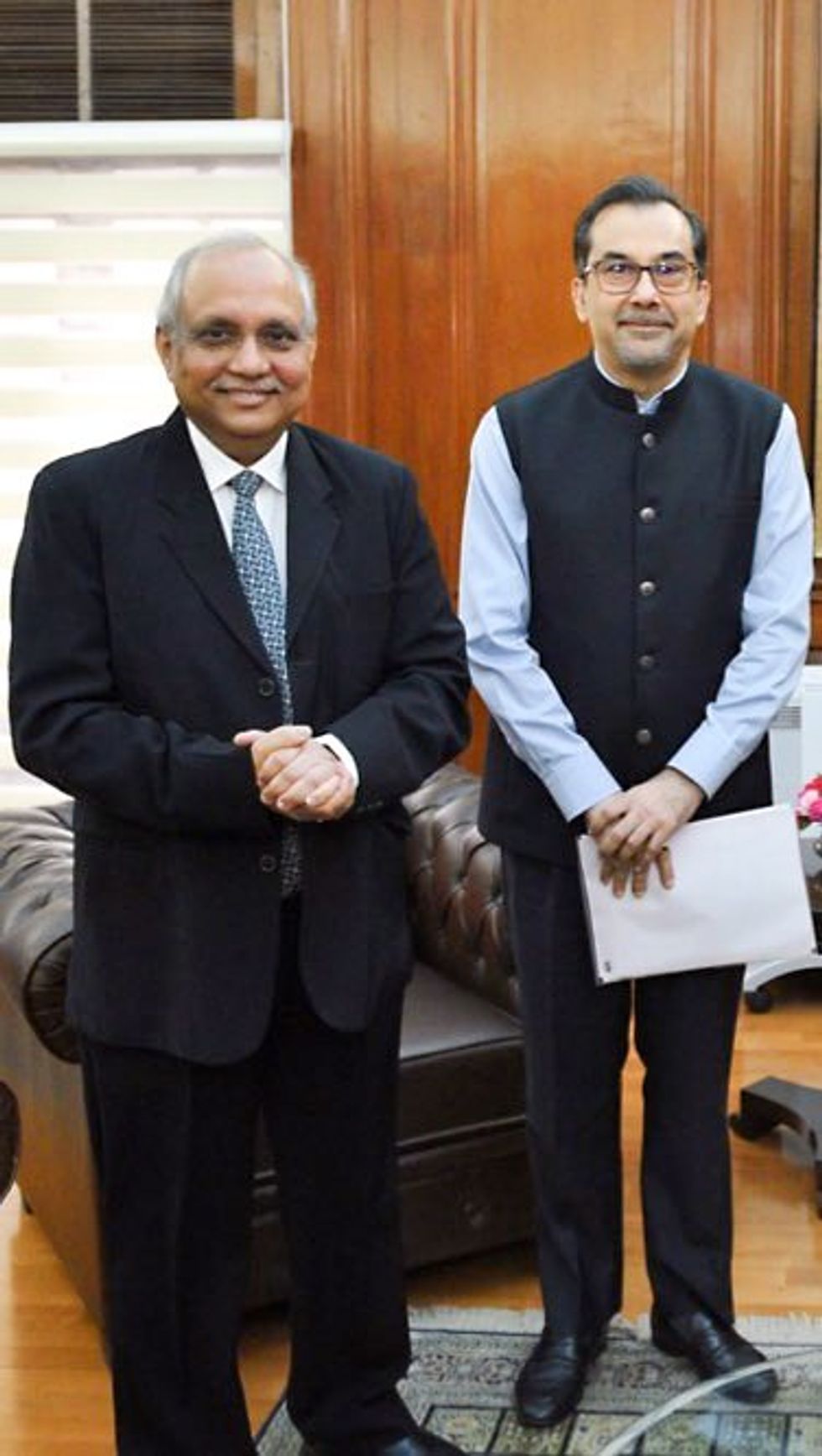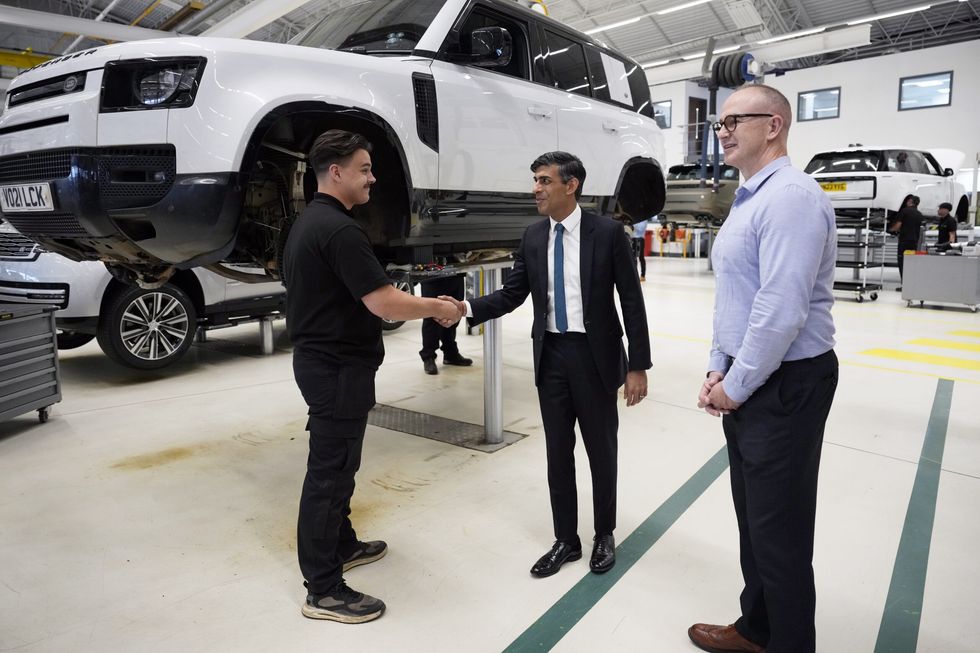THE Confederation of Indian Industry (CII) is marking independence day (15) by revealing an important aspect of its policy towards the UK.
A senior source in the CII – the equivalent of the Confederation of British Industry – told Eastern Eye: “We want to help raise the skills level in the UK.”
Negotiations on a free trade agreement (FTA) are due to resume between Narendra Modi’s re-elected Bharatiya Janata Party (BJP) government and Sir Keir Starmer’s new Labour government.
One problem that is festering is that the UK is taking a hard line on work visas because of the political need to seem tough on migrant numbers.
The CII source said: “We are sympathetic to the compulsions of local politics. But it makes a lot of business sense for the UK to be more flexible, especially regarding immigration and the salary threshold.”
The salary threshold for a specialist worker coming from India has been pushed up to £48,500. And for students who wish to stay after two years on a post study work visa, the threshold has been increased from £26,000 to £38,700.
“Now, you tell me which sponsor will give students a £38,700 salary after two years of work experience?” the source asked. The offer from the CII is that experts who come from India will help to train employees in the UK so as to reduce the skills shortage in this country.
“There are several skills which are not available in the local market,” the source pointed out. “And these skills can come from India. The British government is well aware there is a skills gap in this country, but is still making immigration more and more difficult.
“The Indian government has been pushing for a non-settlement visa – let people come for work for two, three years and then go back. It’s not even an immigration issue. It should be dealt with as a professional labour mobility issue.
“There is talent in India which can come and pass on their skills. Their skills can be transferred to the local population. Rather than ferrying their own people up and down, Indian companies would have good talent available locally from the region where they are investing.”

With the FTA, the UK wants India to reduce the 166 per cent import tax on Scotch whisky. “The pressure is not from the British side, but from the makers of ‘Indian made foreign liquor’ based in India. They want to import more Scotch whisky for their blends. The UK also wants tax reduced on cars.”
On prospects for concluding the FTA, the source said: “David Lammy was in India in February as shadow foreign secretary, and he has been there as foreign secretary. In fact, he’s made all the right noises. He has dealt with the FTA and said, ‘We are serious about going ahead with it.’ The litmus test will be when negotiations resume. We are hoping against hope that this is done quickly.”
The 2024 India meets Britain Tracker report from Grant Thorton said: “Our 2024 research identified a record 971 Indianowned companies operating in the UK, up from 954 in 2023, with combined revenues of £68.09 billion, a strong increase on the £50.5 billion reported in 2023.
“The 971 companies in our research employed 118,430 people, up from 105,931 in 2023, and paid £1.17 billion in corporation tax, compared to £944 million in 2023.” The CII source said bilateral business would improve if there were direct flights from the north of England to India, with Manchester being tipped as a suitable location. The Labour government’s plans to tax overseas entrepreneurs on their global incomes is already causing a flight of capital and relocation of Indian businessmen to havens such as Dubai.
The source said: “This problem is becoming very worrisome. Earlier, you were deemed domiciled if you had lived in the UK for seven financial years out of nine. If you had lived intermittently, it was 12 out of 15. Now the direction of travel is taxing Indian citizens who come to the UK on their global assets right from the start.
“They can’t get round it by forming a trust and have to pay 40 per cent inheritance tax. All this is causing immense concern. The result is the UK treasury will lose more than it gains. Indians have stopped buying property in the UK. If people don’t want to come because of the tax on non-doms, investments will also start decreasing in the long run.”
The CII and the Indian High Commission have jointly produced a report, “Indian Assets: Charting the journey of Indian companies in the UK.”
It said: “In 2023, India topped the list of source markets for foreign direct investment (FDI) into London for the first time, contributing 29 per cent of all FDI into the capital. As the second largest FDI contributor to the UK, noteworthy investments are also being made outside of London, with Indian investors making a positive contribution to the ‘levelling up’ agenda of the UK government.”
It gave examples of the contributions made by companies from India with subsidiaries in the UK.
“Examples of regional investments include the announcement by Tata last summer that it would be investing £4 billion plus into a new battery gigafactory which will deliver electric mobility and renewable storage solutions in Bridgwater, Somerset. This flagship project will create thousands of jobs and is expected to bring growth and prosperity to the wider southwest region.”
“In 2022, TVS Motor Company, a reputed Indian manufacturer of two-wheelers and three-wheelers globally, announced an investment of £100 million in Norton Motorcycles, Britain’s most iconic sporting motorcycle brand.”
The report also said: “In 2022, there were 517,000 visitors from India to the UK. 2017 saw a particularly high volume of visits, totalling 696,000. Total tourism spend in the UK was £764.32 million, with an average spend of £1,480 per person.”

India’s high commissioner to the UK, Vikram Doraiswami, commented in the foreword: “India Inc. has left an indelible and positive mark on the British economy, enriching communities and creating opportunities for both nations.”
And director general of the CII, Chandrajit Banerjee, said: “This is a publication which celebrates the expanding footprint and contribution of Indian FDI in the UK and showcases the success stories of some of our companies operating in the UK and their significant contribution to the UK economy, both through revenues generated and jobs created. This, even before a formal Free Trade Agreement is signed between the world’s fifth and sixth largest economies. The potential is immense which will be further unlocked, should a formal agreement be signed.”
The CII has also given Eastern Eye a copy of another report, “Globally competitive India: Partnerships for Sustainable and Inclusive Growth.”
It sets out why “India is an essential player in the global economy, contributing approximately 16 per cent to global growth in 2023-24. Indian Industry stands at the forefront of this economic ascent and will continue to be instrumental in accelerating growth, innovation, and socioeconomic development.”
UK-India trade has risen to £39bn, compared with over £100bn for China. The UK lags behind as India’s 12th biggest trading partner.
The CII source said with the UK’s obsession about migration, even keeping out Indian businessmen who can help the UK economy to flourish, “Britain is shooting itself in the foot”.




















